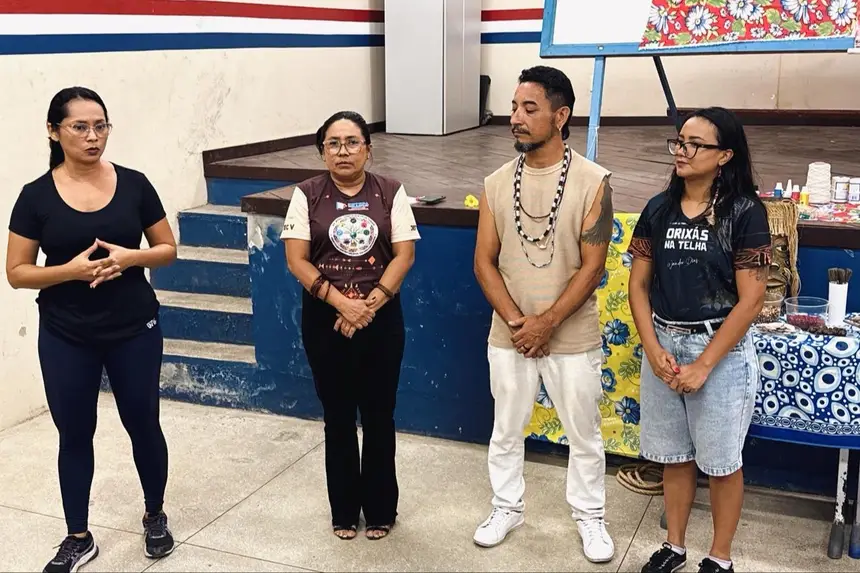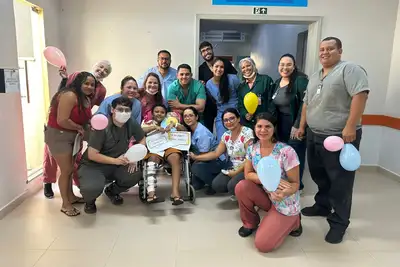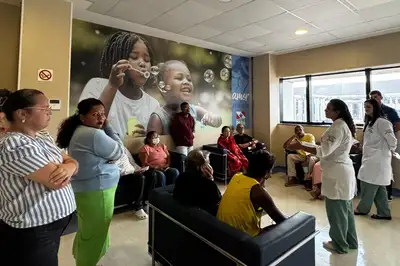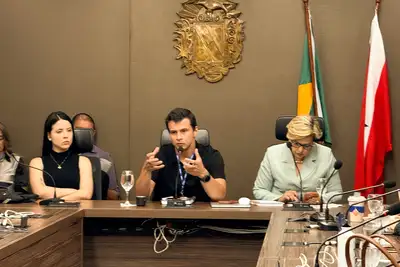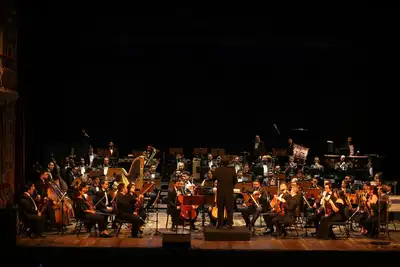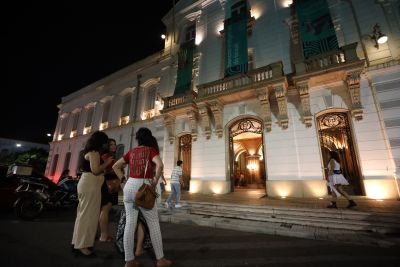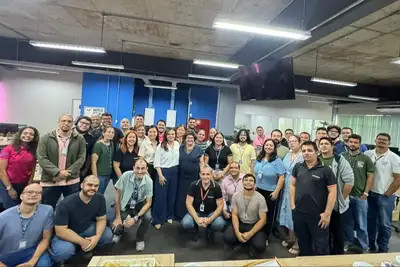Workshop on Orixá Masks Values Afro-Amazonian Ancestry in School of Cametá
Students participated in artistic workshops that united history, religiosity, and cultural identity, concluding the programming of Black November at CIEBT/Eetepa

In reference to the month of combating racism, the Integrated Education Center of Baixo Tocantins (CIEBT/EETEPA), in the municipality of Cametá, concluded, this Tuesday (18), the workshop "Production of Orixá Masks on Tiles", as part of the program "Black November: The Construction of Black Identity and the Role of the School", which has been taking place since the 13th of this month.
The initiative involved students in stages such as storytelling, drawing, transferring art to tiles, modeling in biscuit, and painting with natural materials from the Amazon, aiming to broaden cultural repertoires, stimulate creative experiences, and value elements of Amazonian identity.

Idealized by the Cametá artist Wander Dias, creator of the technique that transforms clay tiles into Orixá masks, the project brought together six meetings that combined artistic practices, traditional knowledge, and discussions about identity and religiosity. "Bringing students closer to Afro-Amazonian ancestry and the symbolic strength of the narratives of the Orixás strengthens cultural awareness within the school," he said.
The program also included discussion circles mediated by Professor Darcielly Cardoso, Territorial Culture Agent, who led reflections on ancestry, religious racism, and the demystification of African matrix religions. "Conducting the workshop in November reinforces the formative character of the action, as it allows the school community to understand religious diversity with more respect, contributing to the confrontation of historical stigmas," she stated.

The experience had an impact on the students. Antônio Dias, a second-year computer science student, said that knowing the history before producing the mask made the learning deeper and made him recognize the importance of cultural appreciation. "The workshop allowed me to explore knowledge and practices in the technical fields of painting, weaving, and modeling, but above all, it made me understand the importance of an anti-racist education that values our origin, identity, and cultural manifestations," he pointed out.
Fellow computer science student Maria Eduarda da Silva Oliveira highlighted that the workshop expanded her understanding of representativeness and respect for traditions, by showing that each mask carries a story and a symbolic strength that enriches the creative process. "The experience was enriching, as learning more about Afro-Brazilian culture and participating in the production of the tiles made her realize that there are various ways to express values and position oneself against racism," reflected Maria.

The coordination of the activity was under the responsibility of Professor Elizabel Martins Pantoja, who integrates the workshop into the pedagogical planning of the institution. "The action reinforces the school as a space for citizen and cultural formation by broadening access to art, promoting dialogue about black identity, and contributing to the confrontation of racism and religious intolerance. Uniting art, education, and ancestry consolidates a transformative practice that values and disseminates Afro-Amazonian expressions in the school environment," she stated.
The culmination of the action will take place this Wednesday (19), with the exhibition of Orixá masks, open to the school community and the public of Cametá. The exhibition will bring together the works developed by the students and will allow sharing the experiences and knowledge acquired throughout the process.

Text: Carla Couto/ Ascom Sectet


